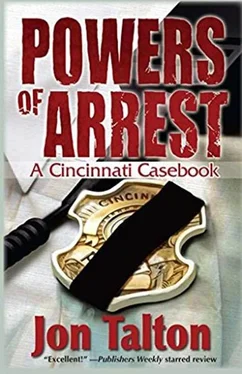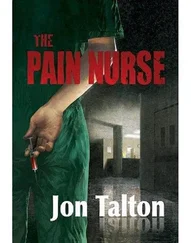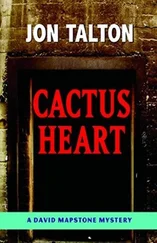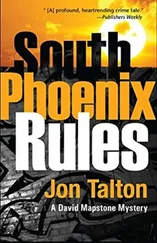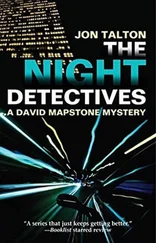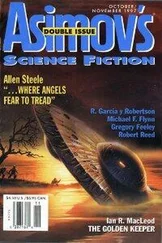“I don’t know,” she said quietly.
“Do you know this man?”
It was the sergeant. He was a deputy sheriff, not one of the campus police officers. He had red hair and a wide, muscular body.
“He’s one of my students.”
“Here?”
Cheryl Beth nodded, and the sergeant wrote down the information, including her name and phone number in a small notebook.
“When was the last time you saw him?”
“Last week. He’s doing his clinical work.”
She stared at the squad car that held Noah.
“Someone should at least check his pulse.”
“We’ll take care of all that. Now you need to leave.” The sergeant then raised his voice. “You all need to move on. This is a crime scene.”
Cheryl Beth walked back the way she had come, her legs feeling weak and stringy, her mind wondering what had happened. She would read about it in the newspaper, but that would never tell the whole story. She actually knew a cop. But it had been a long time since she had seen him.
“Pee-eye-pee-eye-oh!”
“What do you want, Dodds?”
Will Borders swung his body out of the bed with difficulty. The clock said 6:45. He thought about reaching for his cane and standing, then thought better of it. He already had the cell phone in one hand and his legs were feeling both tight and uncertain. He sat and listened to his old partner sing off-key.
“It’s a homicide, buddy.” His voice dropped into its normal roomy baritone.
“I kind of figured, since you’re a homicide detective.”
“Here in Over-the-Rhine, waiting on your white ass.”
“So? A homicide in Over-the-Rhine? I can record something later on the info line for the reporters, post it on the blog.”
“Not this time,” Dodds said. “A white man in a new Lexus with a blade sticking out of his chest. Two television news crews are already here, and we need our PIO on scene.”
Will muttered a profanity.
“Can’t be hard,” Dodds went on. “You’re living in the ghetto already.”
“All right, fifteen minutes.”
“Make it ten.” The line went dead.
Will took his seven a.m. Baclofen early, reached for his black steel cane, and stood. He knew the drill: Tight abdomen, stand with the interior muscles of his legs, and pull his shoulders back and down using his lats. It worked. The days when he could roll out of bed, shower, dress, and be at a crime scene in fifteen minutes were gone. But so were the days, after being discharged from the hospital, when dressing left him exhausted and in tears. Today he used the electric shaver, brushed his teeth, and combed his hair almost like a normal person. In the closet, he sat on a bench and dressed in a suit and tie with only moderate pain and discomfort. At least he could feel something below his waist. At least he was off the pain meds.
He had been dreaming before the phone woke him. He dreamed all the time now. The reason was easy to understand: his legs were twitching, keeping him from falling into a deep sleep. In this dream, he was interviewing for a job in Homicide again, or maybe it was for the first time. It wasn’t the real office, but a sleek, two-level workspace with Danish furniture and nobody he recognized. He was waiting to see Lieutenant Fassbinder. And waiting, and waiting, and then he had missed his interview. He always walked normally in his dreams and awoke filled with anxiety.
Now fully alert, he clipped his badge, holster, and extra cartridge magazines in his belt. In the holster was a Smith & Wesson M &P 40-caliber semiautomatic pistol. He was sweating from the effort by this time. The quads muscles in his right leg were already feeling the strain from the work. He stood again in front of the mirror and straightened his tie. Take away the cane and he almost looked normal: Six-feet-two inches, broad shoulders, and a full head of wavy hair. In better days, Cindy had nicknamed him “TDH” for tall, dark, and handsome. He certainly didn’t feel that way now. Working his way carefully down the stairs, he headed out. The upright Baldwin piano in the living room stood unused, silently judging him.
The dark blue unmarked Ford Crown Victoria with five antennas on the roof and emergency lights under the grille sat unmolested outside his townhouse on Liberty Hill. It was a stub of a street that marked the beginning of the rise of Prospect Hill, which was sometimes called Liberty Hill. Cincinnati could be confusing that way. The little street was a collection of nineteenth century homes, two and three stories, closely spaced and right up on the sidewalk, in various states of repair. Many, like Will’s, had been restored. Now he was glad that his was the only one that required only one step up to enter. A few doors up sat the three-story Pendleton House, with its light-blue mansard roof. It was a National Historic Landmark, having been owned by a senator who led reform of the federal civil service.
Being in only the municipal civil service and yet carrying a badge, Will had an informal deal with the neighborhood homeboys: they kept the car safe and he didn’t bother them. So far it had worked. Downtown glistened to the south. He made himself walk the way he would at the scene: an easy, if slow gait, the cane barely visible, the weakness in his left leg concealed. But he was conscious of every step. Every step was hard as hell. Don’t show it, he told himself for the thousandth time. Don’t show it.
The city of Cincinnati comprised fifty-two neighborhoods in a geography that began with the basin at the river landing and rose onto three-hundred-foot-high hills into which were tucked dozens of valleys, hillsides, and ravines. Each neighborhood had its own history, culture, and feel. But none was like Over-the-Rhine. With its narrow, snaky streets immediately north of downtown and dense rows of four- and five-story tenements and commercial buildings, it had once been the old German enclave. Its five square miles held America’s largest urban historic district, its jewel box of architectural styles mostly unscathed by massive teardowns or urban renewal. It also was the home to Music Hall, Washington Park, and the Findlay Market.
It was half time capsule to the nineteenth century and half slum. Most cops had no sentimental attachment to it. Yet Will liked the place.
A hundred years before, Over-the-Rhine held nearly fifty thousand people. Now, despite the rough-at-the-edges splendor of its buildings, the neighborhood was home to little more than ten percent of that population, and almost all were poor, uneducated, and black. The gentrification of the nineties had paused with the riots, but the place was so magnetic that yet another attempt at a Renaissance was under way on Main Street and elsewhere. The old Stenger’s Café, where he bought coffee for years, was being reborn as a wine shop. There was talk of connecting O.T.R. to downtown with a streetcar, but change came slowly to Cincinnati. Parts of it were amazing in their beauty, others scary even to the cops.
He turned onto Race Street and briefly flashed the vehicle’s emergency lights so a uniform would let him pass. The street was blocked and half a dozen marked and unmarked units were parked in front of a dingy little market that still had a faded Hudepohl beer sign hanging from a rusty overhead rod. It was one of the few places to shop here. Kroger kept threatening to close its small, run-down store over on Vine. It’s not as if this were a place with the demographics or incomes to attract retailers. It attracted plenty of yellow crime-scene tape, which was now being wrapped.
The buildings stood between the street and the low-hanging sun, shrouding the landscape in the half-dark of the hour before real morning. Dodds was standing on the curb with his hands on his hips. He was hard to miss: big as a door, shaved head, with a complexion like strong coffee, and always dressed to the nines. A hundred feet down the block were two television news vans.
Читать дальше
